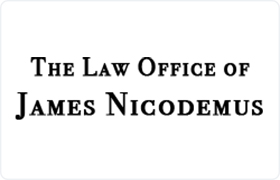Lake Villa Real Estate Lawyer, Illinois
Sponsored Law Firm
-
 x
x

Click For More Info:
-
The Law Offices of James Nicodemus
2700 Patriot Blvd Suite 250 Glenview, IL 60026» view mapReal Estate Law Experienced Real Estate Lawyer
When you need accurate representation, whether it’s a divorce lawyer, family lawyer or child custody attorney, James Nicodemus is there for you.
800-986-5891
Daniel Ben Venturi
Real Estate, Federal Appellate Practice, Estate, Estate Planning
Status: In Good Standing Licensed: 40 Years
William Alfred Churchill
Commercial Real Estate, Real Estate, Estate, Transactions, Business
Status: In Good Standing Licensed: 47 Years
Ronald A. Runkle
Transactions, Real Estate, Elder Law, Trusts
Status: In Good Standing Licensed: 34 Years
Leo Joseph Delaney
Real Estate, Wills & Probate, Estate Planning, Transactions, Business & Trade
Status: In Good Standing Licensed: 37 Years
John Leo Quinn
Real Estate, Wills & Probate, Trusts, Licensing, Civil Rights
Status: In Good Standing Licensed: 47 Years
Mark Van Donselaar
Real Estate, Lawsuit & Dispute, Estate, Accident & Injury
Status: In Good Standing Licensed: 20 Years
Paul R Idlas
Real Estate, Transactions, Bankruptcy, Bankruptcy & Debt
Status: In Good Standing Licensed: 43 Years
Christopher L. Cook
Accident & Injury, Real Estate, Wills & Probate, Trusts, Household Mold
Status: In Good Standing Licensed: 34 Years
David Alan Zipp
Accident & Injury, Criminal, Estate, Real Estate, Traffic
Status: In Good Standing Licensed: 14 Years
 James Nicodemus Glenview, IL
James Nicodemus Glenview, IL AboutThe Law Offices of James Nicodemus
AboutThe Law Offices of James Nicodemus Practice AreasExpertise
Practice AreasExpertise
